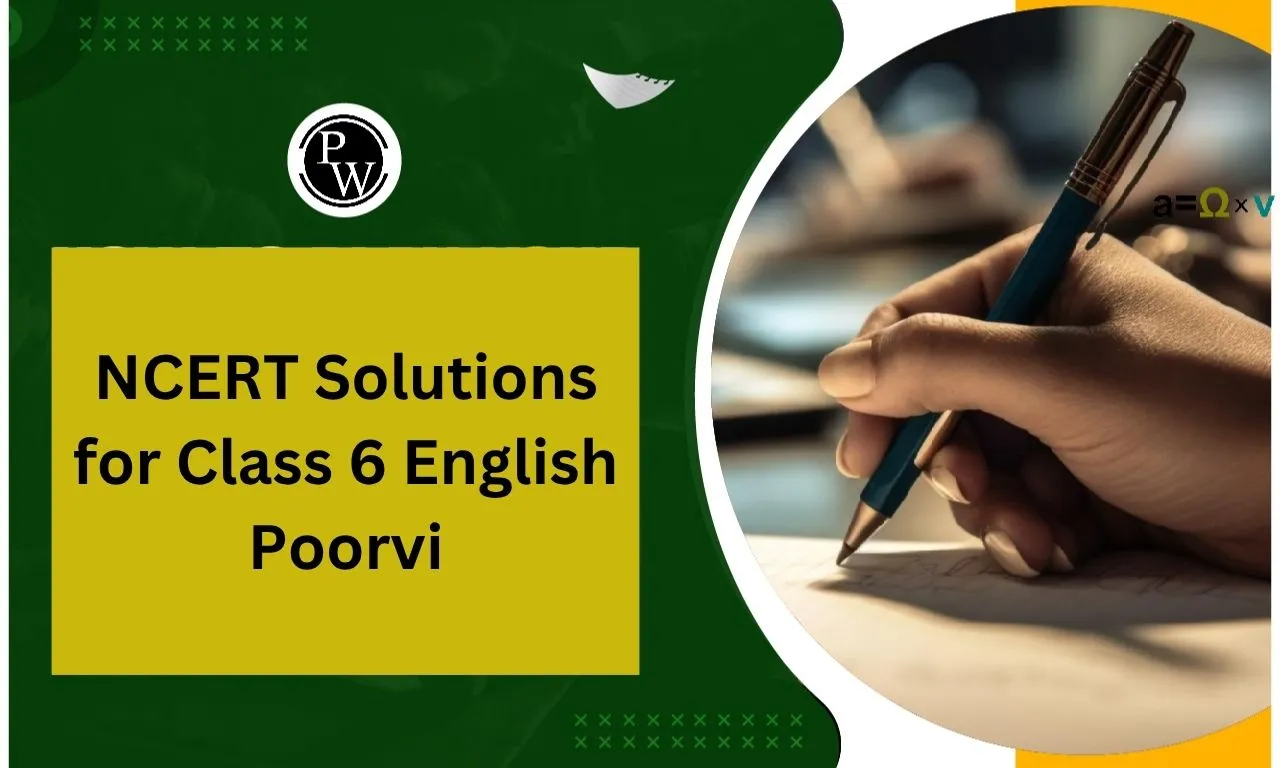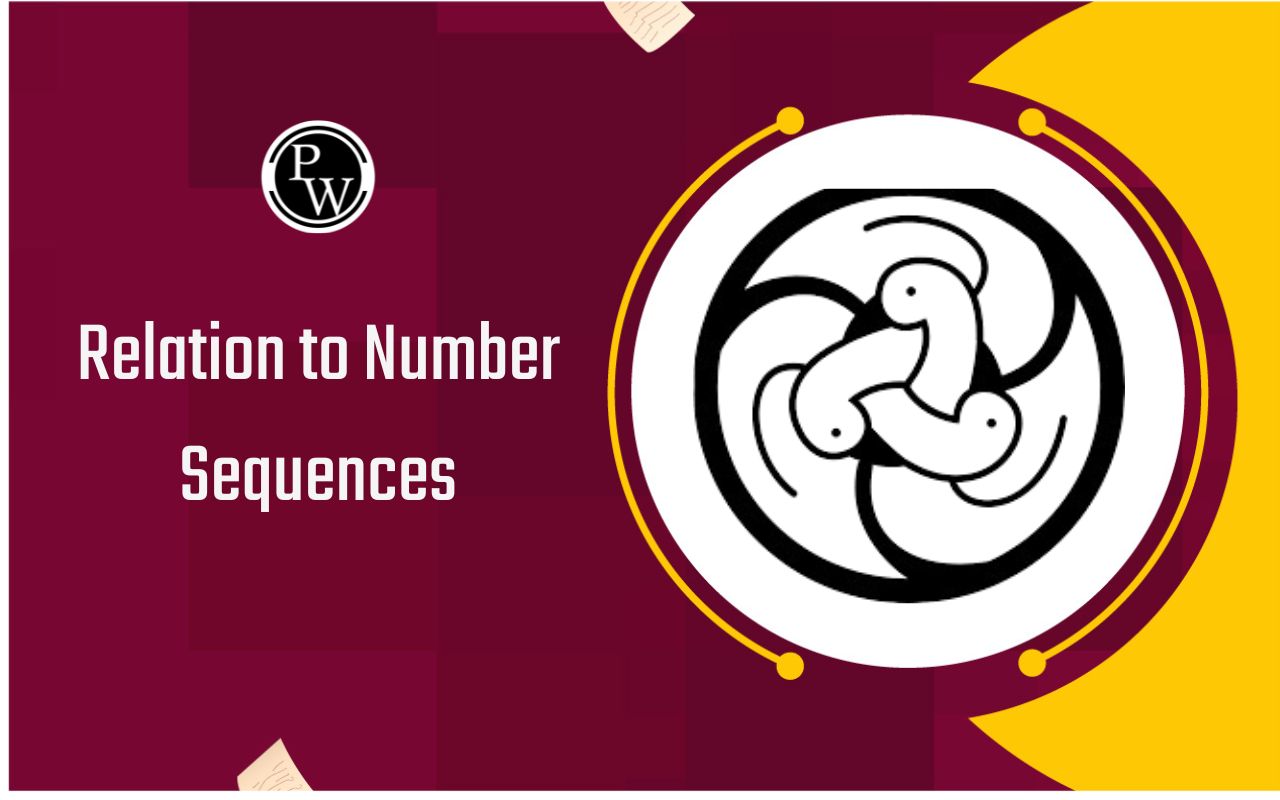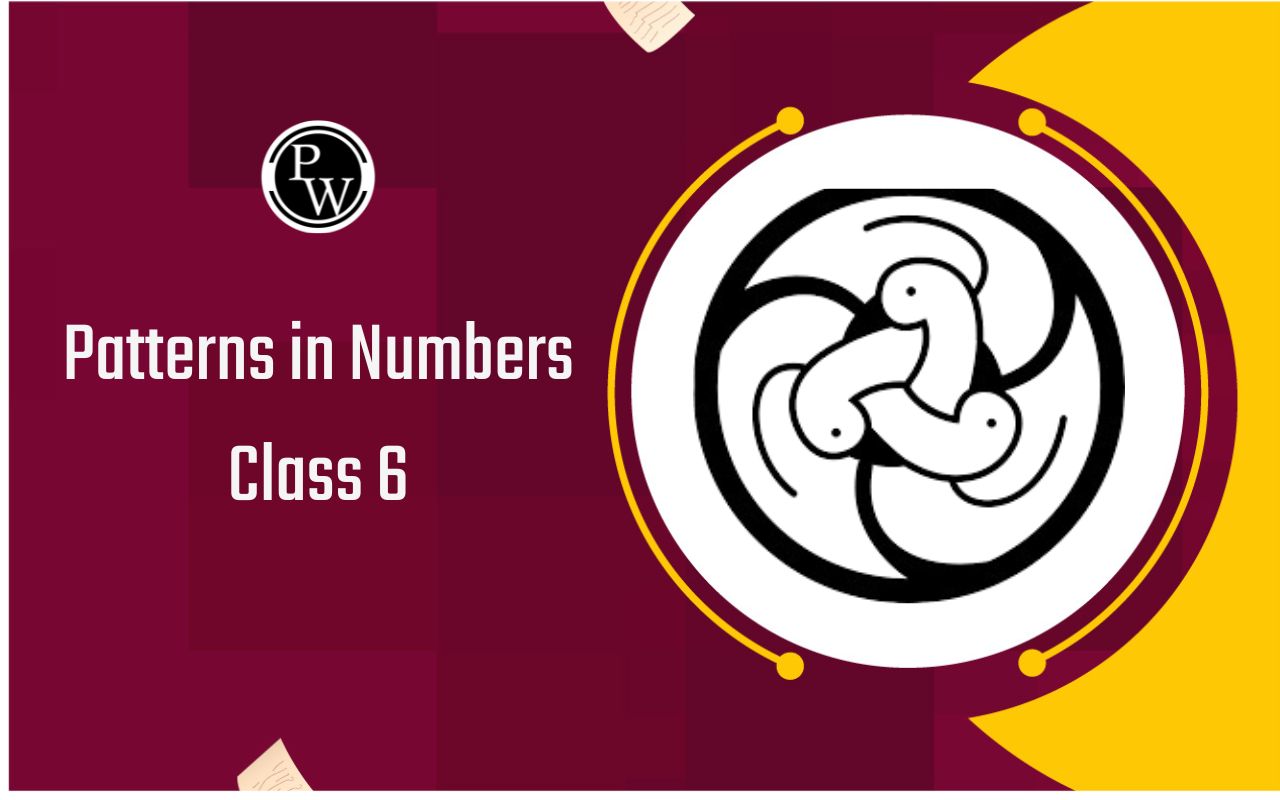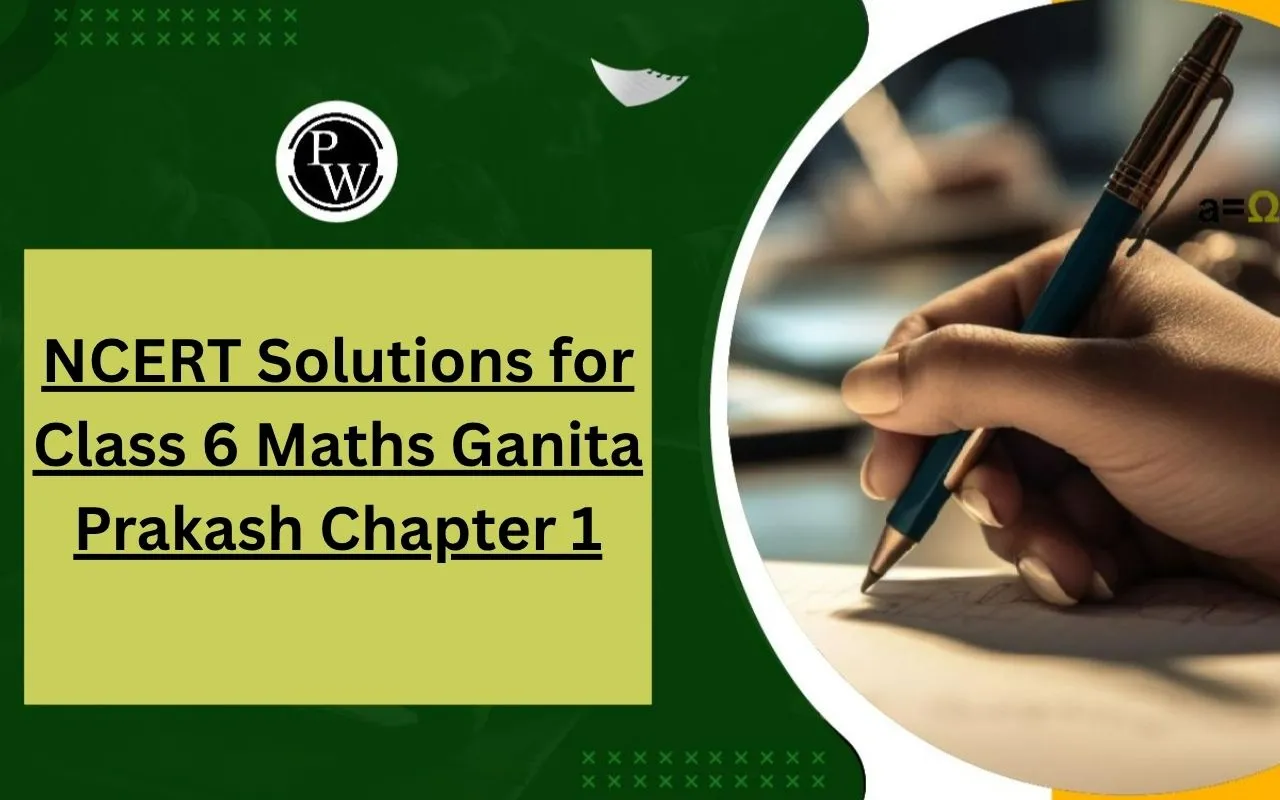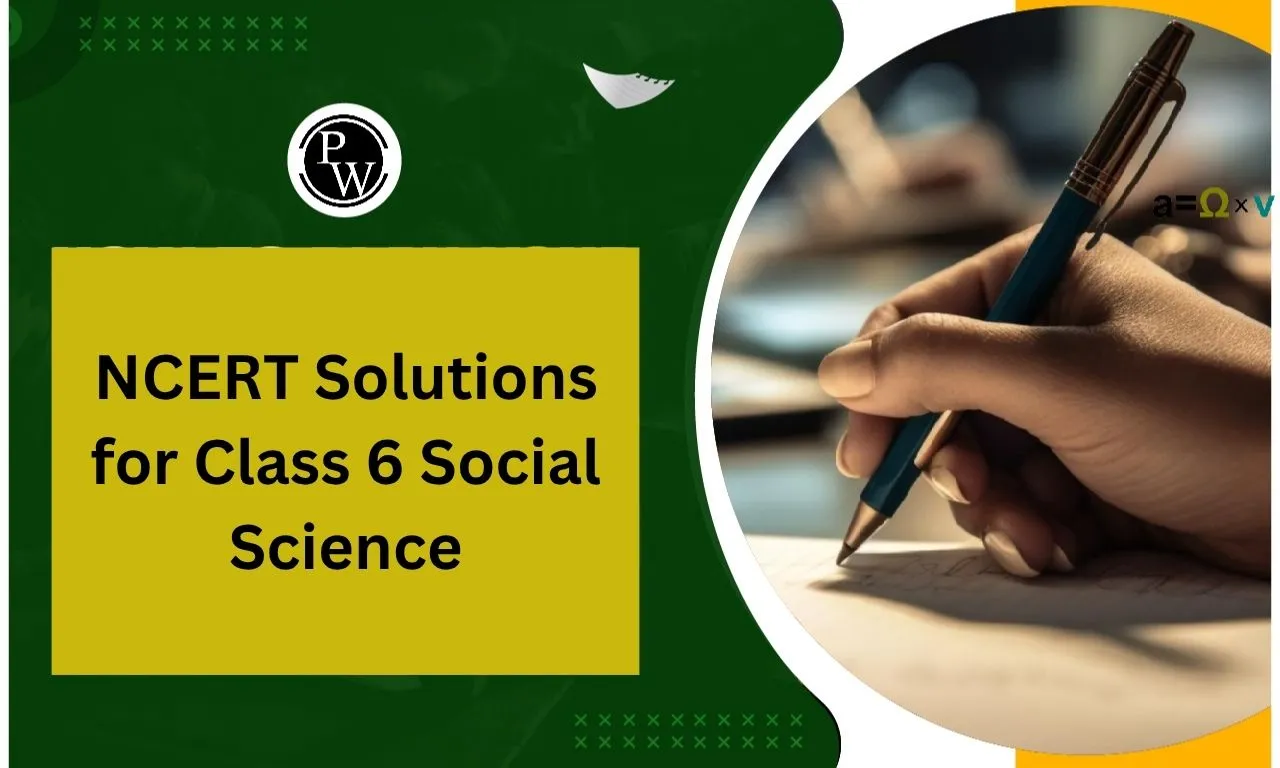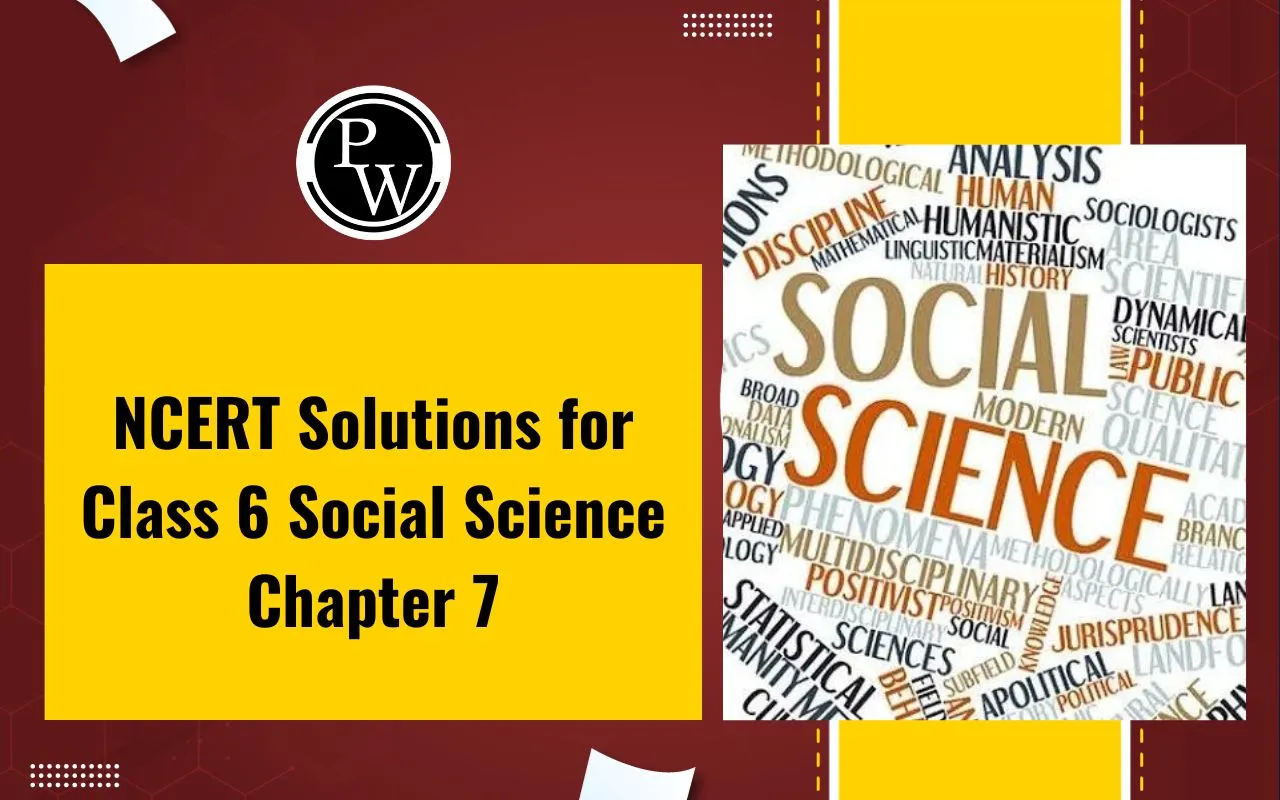
NCERT Solutions for Class 6 Social Science Civics : Are you a Class 6 student struggling to understand the concepts of Social Science Civics? Do you find it challenging to grasp the NCERT textbook solutions? Well, fret no more! We have got you covered with our detailed chapter-wise solutions for Class 6 Social Science Civics.
In this technologically advanced era, students are often overwhelmed with information from multiple sources that can be misleading or incorrect. This is where NCERT Solutions come into play - providing detailed chapter-wise solutions for Class 6 Social Science Civics with clear explanations.NCERT Solutions for Class 6 Social Science Civics Overview
Effectively mastering the chapters with the NCERT Solutions for Class 6 Civics is crucial for students aiming to achieve high marks. These solutions serve as a comprehensive tool to comprehend the chapters and grasp the essential concepts, especially those carrying significant weightage in exams. By utilizing these solutions, students can establish a robust understanding of intricate topics that hold importance in examinations. Access the NCERT Solutions for Class 6 Civics through the provided links for a comprehensive preparation strategy. NCERT Solutions for Class 6 Civics offer comprehensive insights into various chapters, aiding students in understanding key concepts. Here's a brief overview of each chapter:
NCERT Solutions for Class 6 Social Science Civics Chapter 1 – Understanding Diversity:
This chapter delves into the uniqueness of individuals, emphasizing the recognition of differences in terms of race, religion, gender, sexual orientation, physical abilities, and ideologies. The solutions provide answers and explanations related to the concept of diversity.NCERT Solutions for Class 6 Social Science Civics Chapter 2 – Diversity and Discrimination:
Focusing on the theme of diversity, this chapter explores how differences among people can lead to discrimination. Discrimination arises when individuals are mistreated due to their differences. The solutions cover topics and concepts related to fostering respect for diversity through equality.NCERT Solutions for Class 6 Social Science Civics Chapter 3 – What is Government:
Examining the system or group of people with the authority to govern a country, this chapter defines the role and functions of a government. It introduces students to various types of governments, including democracy, republic, monarchy, aristocracy, and dictatorship.NCERT Solutions for Class 6 Social Science Civics Chapter 4 – Key Elements of a Democratic Government:
In a democratic government, equality and justice are crucial. This chapter delves into key elements influencing the functioning of a democratic government, such as people's participation, conflict resolution, and the principles of equality and justice.NCERT Solutions for Class 6 Social Science Civics Chapter 5 – Panchayati Raj:
Exploring the Panchayati Raj system in India, this chapter discusses the three levels – Gram Panchayat, Mandal Parishad, and Zila Parishad. It elucidates the functioning and significance of this local governance system.NCERT Solutions for Class 6 Social Science Civics Chapter 6 – Rural Administration:
Focusing on the vast rural population in India, this chapter explores efficient rural administration. It discusses different types of officers responsible for overseeing rural administration.NCERT Solutions for Class 6 Social Science Civics Chapter 7 – Urban Administration:
Shifting to urban areas, this chapter details the responsibilities of Municipal Corporations or Municipal Councils. It provides insights into the workings of Municipal Wards and the overall administration in urban settings.NCERT Solutions for Class 6 Social Science Civics Chapter 8 – Rural Livelihoods:
Considering the lack of modern facilities in rural areas, this chapter examines the livelihoods of the rural population. It discusses farming and non-farming activities that contribute to earning a living.NCERT Solutions for Class 6 Social Science Civics Chapter 9 – Urban Livelihoods:
Focusing on how people in urban areas earn their livelihood, this chapter delves into diverse occupations. It covers various professions, including office work, employment in shops, and factory jobs. NCERT Solutions for Class 6 Civics provide a comprehensive understanding of these chapters, aiding students in their academic journey.NCERT Solutions for Class 6 Social Science Civics Chapters With Detailed Explanations
Here's an overview of NCERT Solutions for Class 6 Social Science Civics chapters with detailed explanations:NCERT Solutions for Class 6 Social Science Civics Chapter 1 – Understanding Diversity:
This chapter explores the idea that every individual is unique and introduces the concept of diversity across dimensions such as race, religion, gender, sexual orientation, physical abilities, and ideologies. NCERT Solutions provide detailed explanations to help students understand the significance of recognizing and respecting diversity.- Individual Uniqueness: This topic explores the idea that every individual is unique in terms of various aspects such as personality, background, and characteristics.
- Dimensions of Diversity: The chapter introduces various dimensions of diversity, including race, religion, gender, sexual orientation, physical abilities, and ideologies.
NCERT Solutions for Class 6 Social Science Civics Chapter 2 – Diversity and Discrimination:
Building upon the theme of diversity, this chapter delves into the potential discrimination that may arise due to differences among individuals. NCERT Solutions offer in-depth explanations to help students comprehend how discrimination can be countered through the principles of equality and respect.- Diversity Awareness: The chapter delves into the importance of being aware of and respecting diversity to promote a harmonious society.
- Discrimination and Countering it: Exploring instances of discrimination, the chapter discusses ways to counter discrimination through principles of equality and respect.
NCERT Solutions for Class 6 Social Science Civics Chapter 3 – What is Government:
This chapter defines the concept of government, explaining its role as a system or group of people with the authority to govern a country or state. NCERT Solutions provide detailed insights into the various types of governments, including democracy, republic, monarchy, aristocracy, and dictatorship.- Definition of Government: This topic defines the concept of government as a system or group of people with the authority to govern a country or state.
- Types of Government: The chapter explores various types of governments, including democracy, republic, monarchy, aristocracy, and dictatorship.
NCERT Solutions for Class 6 Social Science Civics Chapter 4 – Key Elements of a Democratic Government:
Focusing on democratic governance, this chapter elaborates on key elements such as people's participation, conflict resolution, and principles of equality and justice. NCERT Solutions offer detailed explanations to aid students in understanding the foundational aspects of a democratic government.- People’s Participation: Discussing the significance of active participation by citizens in a democratic government.
- Conflict Resolution: Exploring methods of resolving conflicts within a democratic setup.
- Equality and Justice: Understanding the principles of equality and justice in a democratic government.
NCERT Solutions for Class 6 Social Science Civics Chapter 5 – Panchayati Raj:
Exploring the Panchayati Raj system in India, this chapter discusses the three levels – Gram Panchayat, Mandal Parishad, and Zila Parishad. NCERT Solutions provide detailed explanations of the functioning and significance of the Panchayati Raj system in local governance.- Levels of Panchayati Raj: Discussing the three levels of the Panchayati Raj system - Gram Panchayat, Mandal Parishad, and Zila Parishad.
- Functions of Panchayati Raj: Exploring the functions and roles of each level in the Panchayati Raj system.
NCERT Solutions for Class 6 Social Science Civics Chapter 6 – Rural Administration:
Examining the administration of rural areas in India, this chapter discusses the roles of different officers responsible for overseeing rural administration. NCERT Solutions offer detailed explanations to help students grasp the intricacies of rural administration.- Roles of Officers: Examining the roles and responsibilities of different officers in rural administration.
- Efficient Rural Administration: Understanding the importance of efficient administration in rural areas for smooth functioning.
NCERT Solutions for Class 6 Social Science Civics Chapter 7 – Urban Administration:
Shifting to urban areas, this chapter details the responsibilities of Municipal Corporations or Municipal Councils. NCERT Solutions provide comprehensive explanations of the functions of Municipal Wards and the overall administration in urban settings.- Municipal Corporations and Councils: Discussing the responsibilities of Municipal Corporations and Municipal Councils in urban areas.
- Functioning of Municipal Wards: Exploring the role and functioning of Municipal Wards in urban administration.
NCERT Solutions for Class 6 Social Science Civics Chapter 8 – Rural Livelihoods:
Considering the rural population's dependence on traditional livelihoods, this chapter explores various occupations related to farming and non-farming activities. NCERT Solutions provide detailed explanations to help students understand the dynamics of rural livelihoods.- Types of Livelihoods: Exploring different types of livelihoods prevalent in rural areas, including farming and non-farming activities.
- Sustainable Rural Livelihoods: Discussing the importance of sustainable livelihoods in rural settings.
NCERT Solutions for Class 6 Social Science Civics Chapter 9 – Urban Livelihoods:
Focusing on urban areas, this chapter explores the diverse ways in which people earn their livelihoods, including office work, employment in shops, and factory jobs. NCERT Solutions offer detailed explanations to enhance students' understanding of urban livelihoods.- Ways of Earning in Urban Areas: Exploring the various ways in which people earn their livelihoods in urban areas, including office work, shop employment, and factory jobs.
- Urban Economic Activities: Understanding the economic activities that contribute to urban livelihoods.
CBSE Board Exam Centre List 2024
Benefits of Practicing NCERT Solutions for Class 6 Social Science Civics
Practicing NCERT Solutions for Class 6 Social Science Civics offers several benefits for students:- The solutions provide clear and concise explanations for each chapter and topic, ensuring that students grasp the fundamental concepts with ease.
- NCERT Solutions cover all the questions and exercises from the textbook, offering a comprehensive understanding of the entire syllabus.
- By solving these solutions, students can effectively prepare for exams as the questions are aligned with the CBSE syllabus, helping them become familiar with the exam pattern.
- The solutions serve as an excellent revision tool, allowing students to revisit and revise concepts before exams.
- Each solution is presented in a step-by-step manner, aiding students in developing a clear thought process while solving problems and answering questions.
- Through chapters like "Understanding Diversity" and "Diversity and Discrimination," students gain insights into the importance of diversity, fostering tolerance and understanding.
- Chapters like "Key Elements of a Democratic Government" instill democratic values by explaining the significance of people's participation, conflict resolution, equality, and justice.
- With chapters such as "Panchayati Raj," students become aware of the functioning of local governance systems, contributing to their understanding of democratic practices.
- Chapters on urban and rural administration provide insights into the governance structures, helping students understand how different areas are managed.
- Chapters on rural and urban livelihoods broaden students' understanding of the diverse ways people earn a living in different settings.
- The solutions encourage holistic learning by covering not only theoretical concepts but also practical aspects of governance and livelihoods.
- By addressing diverse topics, the solutions promote critical thinking and analytical skills among students.
- The solutions often include real-life examples, making the content more relatable and applicable to students' everyday experiences.
- A strong foundation built through NCERT Solutions serves as a stepping stone for students as they progress to higher classes, ensuring continuity in their understanding of social science concepts.
| CBSE Syllabus Class 6 | |
| CBSE Class 6 Science Syllabus | CBSE Class 6 Maths Syllabus |
| CBSE Class 6 Social Science Syllabus | CBSE Class 6 English Syllabus |
NCERT Solutions for Class 6 Social Science Civics PDF Download
The journey of learning can be daunting at times, especially for young students. But with the availability of free PDF downloads of these solutions, students can now access high-quality study materials and strengthen their understanding of the subject. Remember, knowledge is power, and by using Physics Wallah notes and solutions alongside NCERT solutions, students can reach greater heights in their academic journey. With all the distractions that surround students today, it's essential to have reliable and comprehensive study materials to help them stay focused and motivated. This includes well-written explanations, visuals, and practice questions that challenge their critical thinking skills. And that's precisely what NCERT solutions provide. Plus, being written strictly as per CBSE guidelines makes them trustworthy and a handy tool for not just exams but also building a strong foundation for future studies.NCERT Solutions for Class 6 Social Science Civics PDF Download
NCERT Solutions for Class 6 Social Science Civics - Important Questions Chapter-Wise
Below are some important questions chapter-wise for NCERT Class 6 Social Science Civics, along with brief answers:NCERT Solutions for Class 6 Social Science Civics Chapter 1: Understanding Diversity
Q: What is diversity? A: Diversity refers to the differences among individuals based on factors such as race, religion, gender, sexual orientation, physical abilities, and ideologies. Q: Why is understanding diversity important? A: Understanding diversity is essential for promoting respect, tolerance, and equality among people. It helps in building a harmonious and inclusive society.NCERT Solutions for Class 6 Social Science Civics Chapter 2: Diversity and Discrimination
Q: Define discrimination. A: Discrimination is the unfair or prejudiced treatment of individuals based on differences such as race, religion, or gender. Q: How can discrimination be prevented? A: Discrimination can be prevented by promoting equality, respecting diversity, and fostering an inclusive environment where everyone is treated fairly.NCERT Solutions for Class 6 Social Science Civics Chapter 3: What is Government
Q: What is the role of a government? A: The government is responsible for making public policies, ensuring law and order, and addressing the needs of the society. It has the authority to govern a country or state. Q: Name different types of governments. A: Democracy, republic, monarchy, aristocracy, and dictatorship are different types of governments.NCERT Solutions for Class 6 Social Science Civics Chapter 4: Key Elements of a Democratic Government
Q: Explain the concept of people's participation in a democratic government. A: People's participation involves citizens actively engaging in the decision-making process, contributing to policies, and exercising their right to vote. Q: Why is equality and justice important in a democratic government? A: Equality and justice ensure fair treatment for all citizens, maintaining the principles of democracy.NCERT Solutions for Class 6 Social Science Civics Chapter 5: Panchayati Raj
Q: What are the three levels of Panchayati Raj? A: The three levels are Gram Panchayat (village level), Mandal Parishad or Block Samiti (block level), and Zila Parishad (district level). Q: When was Panchayati Raj formalized in India? A: Panchayati Raj was formalized in 1992 by the 73rd amendment to the Indian Constitution.NCERT Solutions for Class 6 Social Science Civics Chapter 6: Rural Administration
Q: What is the significance of efficient rural administration? A: Efficient rural administration ensures the smooth functioning of rural areas, addressing the needs of the population. Q: Who are the different types of officers in charge of rural administration in India? A: Officers include Sarpanch, Patwari, and Gram Sachiv, among others.NCERT Solutions for Class 6 Social Science Civics Chapter 7: Urban Administration
Q: What are Wards in urban administration? A: Wards are subdivisions of a town or city municipality, each represented by a councillor. Q: How does Urban Administration function in large cities and smaller towns? A: In large cities, it is called a Corporation, while in smaller towns, it is called a Council.NCERT Solutions for Class 6 Social Science Civics Chapter 8: Rural Livelihoods
Q: What does the term "livelihoods" refer to? A: Livelihoods refer to the type of jobs and lifestyles people lead to earn a living. Q: Give examples of livelihoods in rural areas. A: Examples include farming, making butter, selling baskets, fishing, and raising livestock.NCERT Solutions for Class 6 Social Science Civics Chapter 9: Urban Livelihoods
Q: How do people in urban areas earn their livelihood? A: People in urban areas earn their livelihood through various means, including working in offices, shops, and factories. Q: What distinguishes urban livelihood from rural livelihood? A: Urban livelihood involves diverse occupations found in cities, ranging from professional jobs to service-oriented roles. These questions cover key topics from each chapter of NCERT Class 6 Social Science Civics, providing a comprehensive understanding of the subject.Why Choose Physics Wallah's NCERT Solutions for Class 6 Social Science Civics?
Choosing Physics Wallah's NCERT Solutions for Class 6 Social Science Civics offers several advantages for students:- Physics Wallah's solutions are designed by experienced educators who have a deep understanding of the CBSE syllabus, ensuring accuracy and clarity in explanations.
- The solutions cover all chapters and topics of Class 6 Social Science Civics, providing a thorough understanding of the entire syllabus.
- Solutions are presented in a step-by-step manner, helping students follow a logical and systematic approach when solving problems or answering questions.
- Physics Wallah's solutions focus on enhancing conceptual clarity, ensuring that students not only memorize information but also understand the underlying principles.
- The solutions are aligned with the CBSE exam pattern, aiding students in effective exam preparation by familiarizing them with the types of questions that may appear.
- Physics Wallah's approach goes beyond rote learning, encouraging holistic understanding by connecting theoretical concepts with practical applications.
- Physics Wallah often incorporates interactive elements, making the learning experience engaging and enjoyable for students.
- The inclusion of visual aids, diagrams, and real-life examples in the solutions enhances comprehension and makes complex topics more accessible.
- The solutions emphasize real-life applications of concepts, helping students relate theoretical knowledge to practical scenarios.
- Physics Wallah ensures that the solutions are regularly updated to align with any changes in the CBSE syllabus, keeping students informed about the latest requirements.
- Physics Wallah may provide additional resources, such as video explanations or supplementary notes, to complement the NCERT Solutions and offer a more comprehensive learning experience.
- Students can access Physics Wallah's NCERT Solutions online, providing the flexibility to study at their own pace and convenience.
- Physics Wallah may offer platforms for students to seek clarification of doubts, facilitating a more interactive and supportive learning environment.
- Physics Wallah's reputation and track record in providing quality educational resources make it a trusted choice among students and educators.
NCERT Solutions for Class 6 Social Science Civics FAQs
What is the importance of using NCERT Solutions for Class 6 Social Science Civics?
NCERT Solutions for Class 6 Social Science Civics are crucial as they provide accurate and comprehensive explanations for each chapter and topic. They help students understand complex concepts, prepare for exams, and build a strong foundation in Civics.
How can NCERT Solutions for Class 6 Social Science Civics benefit students in exam preparation?
The solutions offer a step-by-step approach to problem-solving, ensuring that students grasp each concept thoroughly. By practicing these solutions, students become familiar with the exam pattern, enhance their problem-solving skills, and increase their chances of scoring well.
Are Physics Wallah's NCERT Solutions for Class 6 Social Science Civics aligned with the CBSE syllabus?
Yes, Physics Wallah's NCERT Solutions are designed to align with the CBSE syllabus. The solutions cover all the chapters and topics specified in the Class 6 Social Science Civics syllabus.
Can these solutions be used for self-study, or do they require guidance from teachers?
These solutions are designed for self-study, and students can use them independently. However, teachers' guidance can be beneficial in clarifying doubts and providing additional explanations if needed.
How often are the NCERT Solutions for Class 6 Social Science Civics updated?
The solutions are regularly updated to align with any changes in the CBSE syllabus. Physics Wallah ensures that the content remains relevant and up-to-date.
Talk to a counsellorHave doubts? Our support team will be happy to assist you!

Free Learning Resources
PW Books
Notes (Class 10-12)
PW Study Materials
Notes (Class 6-9)
Ncert Solutions
Govt Exams
Class 6th to 12th Online Courses
Govt Job Exams Courses
UPSC Coaching
Defence Exam Coaching
Gate Exam Coaching
Other Exams
Know about Physics Wallah
Physics Wallah is an Indian edtech platform that provides accessible & comprehensive learning experiences to students from Class 6th to postgraduate level. We also provide extensive NCERT solutions, sample paper, NEET, JEE Mains, BITSAT previous year papers & more such resources to students. Physics Wallah also caters to over 3.5 million registered students and over 78 lakh+ Youtube subscribers with 4.8 rating on its app.
We Stand Out because
We provide students with intensive courses with India’s qualified & experienced faculties & mentors. PW strives to make the learning experience comprehensive and accessible for students of all sections of society. We believe in empowering every single student who couldn't dream of a good career in engineering and medical field earlier.
Our Key Focus Areas
Physics Wallah's main focus is to make the learning experience as economical as possible for all students. With our affordable courses like Lakshya, Udaan and Arjuna and many others, we have been able to provide a platform for lakhs of aspirants. From providing Chemistry, Maths, Physics formula to giving e-books of eminent authors like RD Sharma, RS Aggarwal and Lakhmir Singh, PW focuses on every single student's need for preparation.
What Makes Us Different
Physics Wallah strives to develop a comprehensive pedagogical structure for students, where they get a state-of-the-art learning experience with study material and resources. Apart from catering students preparing for JEE Mains and NEET, PW also provides study material for each state board like Uttar Pradesh, Bihar, and others
Copyright © 2026 Physicswallah Limited All rights reserved.


